Out With The Old, In With The New: Is Coal-Fired Energy Out and Solar Thermal Energy Is In?
The Guardian reported that Australian solar companies are working on a large scale thermal projects believe that they are close to achieving the...

This October, Melbourne hosted the All Energy Australia Exhibition and Conference with leading companies in the clean energy sector. We met up with exhibitors and speakers to get a glimpse at the newest renewables-based technologies on offer for residents and businesses across Australia.
Peter from SolarEdge showcased the latest residential inverter solar products, boasting that their products offer higher outputs and better returns for homeowners. Their products are able to integrate battery storage, energy management, and full access to an internet monitoring portal to see what your system is producing.
Sebastian presented the newest technology from Fronius. On display was the Fronius Primer Gen24 solar inverter. While known for their solar power inverters, in their 76 Fronius has also grown to do welding, machines, and battery charging. Fronius assures homeowners that if they have an existing solar system, the Primer Gen24, and other Fronius products, can be added to your existing system.
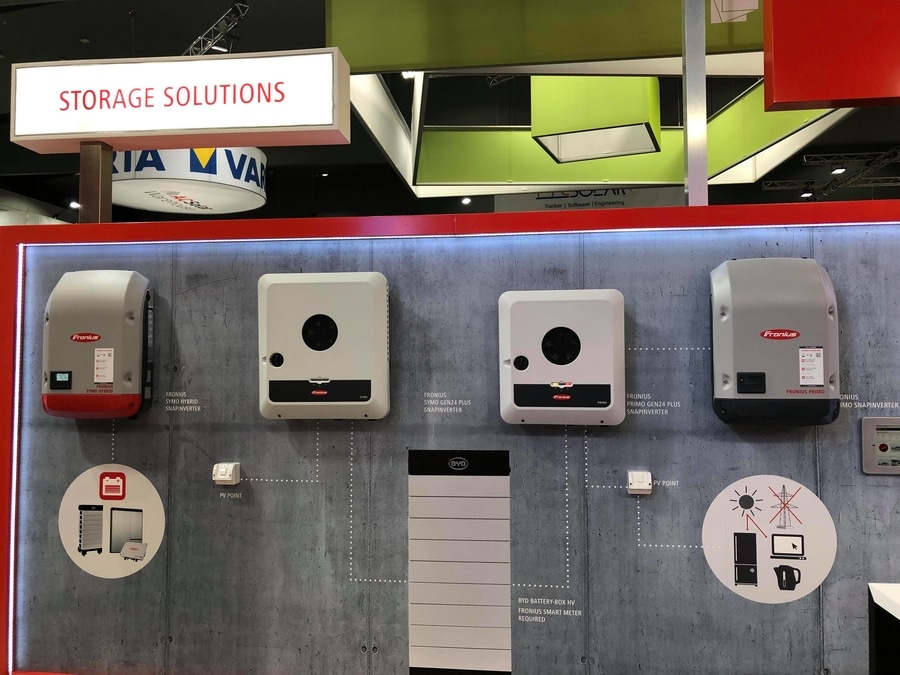
Matthew from Proa presented his Australian solar forecasting company. Proa provides operational forecasting services to large-scale solar farms across Australia.
Chris from Solar Proof offered a software for solar retailers to run a solar analysis and provide roof top images. He said that his software could “run a full simulation and financial projection for solar systems” which help customers get an accurate understanding of what a solar system will provide for their home.
Manfred presented the latest technology from Solar Analytics: a way of measuring the performance of your solar unit. While 1.5 million Australian households make use of solar systems, 50% of solar power systems underperform. Solar Analytic’s solution is an app you can use to monitor your system’s capacity against data gleamed from your local whether forecast.
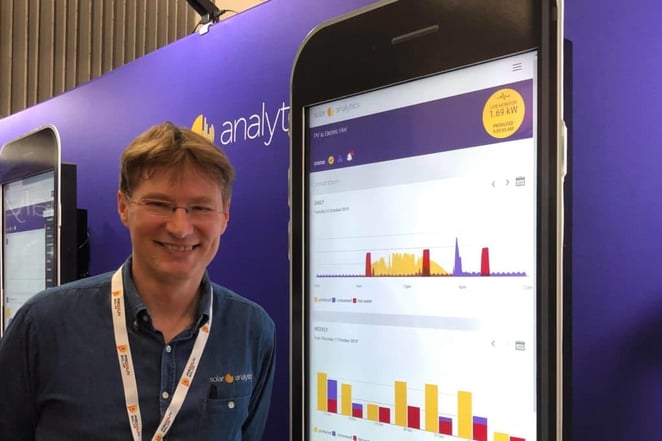
Tim from GreenTech introduced his company as “your renewable energy partner”. GreenTech is the largest wholesale network of solar and electrical products across Australia “with 21 localised branches to service your daily needs”.
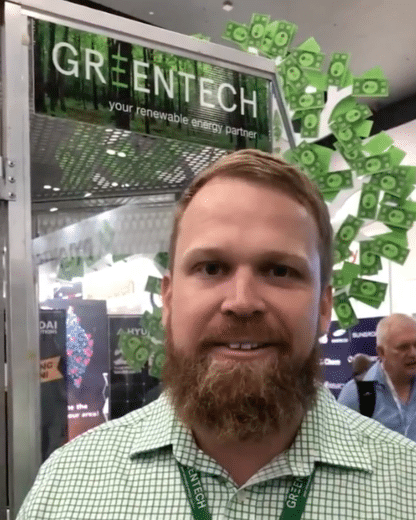
LG Energy demonstrated their 25 year product warranty, noting that most industry standard companies only offer 12 years. LG’s warranty is also desirable as product warranties guarantee repairs or replacements for 25 years of a product’s life. Most company’s offer performance warranties, which are difficult for consumers to claim. A spokesperson noted that under a 25 year product warranty, “if anything goes wrong, we will replace the panel and also pay for the labour”.
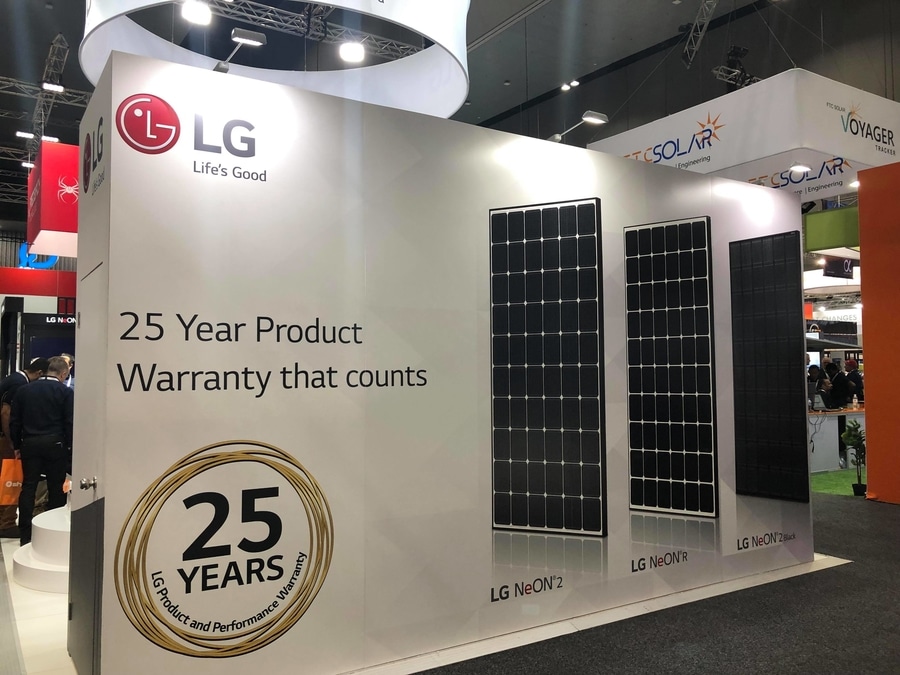
Meredith from the Clean Energy Council promoted membership offerings aimed at making renewable energy solutions more accessible for installers, consumers and manufacturers in Australia’s solar industry. Also on offer is CEC’s accredited installer program, which solar installers can join to assess their work against quality controlled industry standards. CEC also brought their products team to reveal their testing and compliance processes to maintain their approved products certificate.
Tesla promoted the benefits of becoming a Tesla certified installer. These include the constant supply of stock, ongoing training and on-boarding, as well as technical support. This means that if an installer company is on site and in need of assistance, they can call Tesla directly and have support delivered to them on site if required. Solar retailers with Telsa will be the first to hear about marketing updates, and be provided with marketing materials and assets.
Tesla also offers direct channels to consumers. This means you can order solar products through Tesla, and have the Tesla team install them on your property, as an alternative to using a Tesla-certified partner installer. Tesla used the All Energy conference to demonstrate two products: the Tesla Powerwall battery for residential properties, and the Tesla Powerpack for commercial battery use.
Sean from LG Energy showed off the newest solar-powered car roof for Hyundai motors electric cars. This product is currently only available in Korea and the US. While the solar roof won’t make Hyundai solar cars 100% free of charge, it is a huge step towards producing vehicles that operate on clean energy.
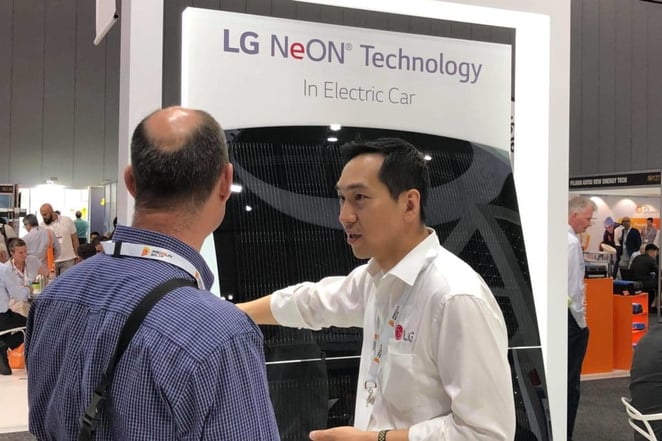
Geizer from Clenergy showcased the exciting new ezShade, a solar panel topped car port designed to charge electric vehicles. The product comes in both single and double car space sizes. The car port comes with black LG NeON photovoltaic panels.
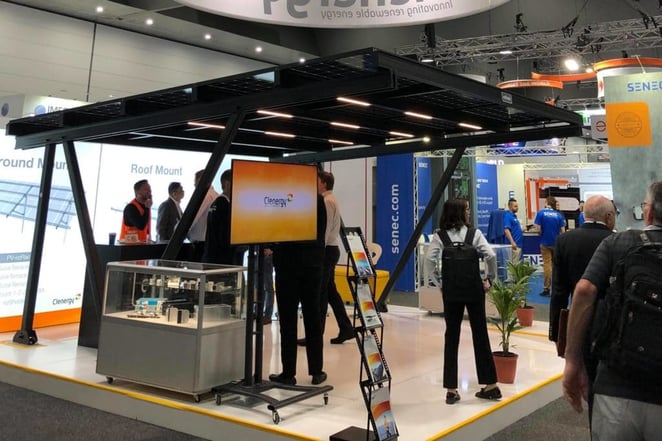
So, that was a summary of the most interesting products and services showcased at All Energy 2019. We had a lot of fun speaking with leaders and innovators in the Renewables industry, and we will be excited to do it again in the future.
The Guardian reported that Australian solar companies are working on a large scale thermal projects believe that they are close to achieving the...
The Renewable Energy Index which has just been launched has shown renewable energy sources in Australia produced enough electricity to power 70% of...